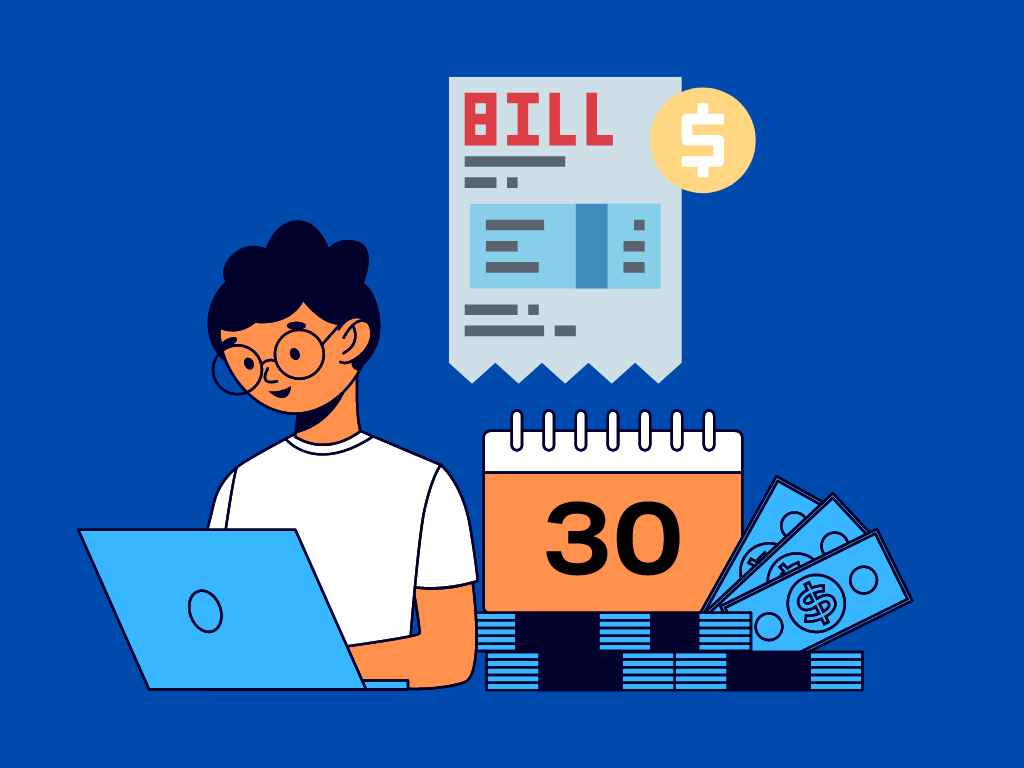What are Accrued Expenses?
Accrued expenses are those expenses that are incurred but not yet paid. These expenses are recorded as accrued liabilities and classified under current liabilities in the balance sheet.
What’s covered in the article
The accrual basis of accounting requires recording expenses as and when incurred, irrespective of their payment.
It helps the users of financial statements in measuring the performance of a business accurately during any given reporting period.
Companies following the cash method of accounting are not required to record accrued expenses in their accounting records.
Reasons for Accrued Expense Build-up
The requirement for operating cash in a business is one of the primary reasons for accrued expense build-up. In other words, business organizations require cash to continue their operations while waiting for money to arrive, causing a build-up of accrued expenses as liabilities in the balance sheet until the time of payment.
Accrued interest on borrowings due to differences in accrual date and the actual payment date is one of the primary reasons for accumulating accrued expenses in large corporations. Failure to anticipate the accrued expenses during an accounting period also causes a build-up of accrued expenses in many small businesses.
Application of Accrual Method of Accounting
Under the accrual method, the expenses are accounted as and when incurred, unlike the cash method, where expenses are recognized only when there is cash outflow in the organization.
Accrual accounting helps avoid misstatements in the financial statements, giving a fair view of the financial position.
This system also facilitates the stakeholders and other users of financial statements to analyze a business and make rational investment decisions since the expenses during a reporting period are aligned with the associated revenue of that period.
Examples of Accrued Expenses

Following are some examples of accrued expenses:
- Salaries and wages
- Rent payable
- Interest payable
- Tax payable
- Commission payable
How are Accrued Expenses Recorded?
Is an Accrued Expense a Debit or Credit?
Accrued expenses are recognized by debiting the appropriate expense account and crediting an accrued liability account. When these expenses incurred are settled, a reversal entry is to be passed, debiting the bank or cash account and crediting the respective accrued liability account.
Below are some examples illustrating the accounting treatment of accrued expenses.
- Salaries and wages payable
Salaries and wages as employees or laborers are usually paid weekly or monthly. For instance, the work done by employees of ABC Inc. for a month is paid on the 5th of the next month. Accordingly, it should be recorded by debiting the wages & salaries expense account, crediting accrued expenses or salaries payable account, and making an offsetting entry by debiting these expenses and crediting cash when the payment is made.
Salaries & wages payable of $ 1,00,000 will be recorded as follows:
| Particulars | Debit | Credit |
| Salaries & Wages Expense (Income Statement) | 1,000,00 | |
| To Salaries payable(Balance Sheet- Liabilities) | 1,000,00 |
On payment of the above expenses, the accounting entry will be as follows:
| Particulars | Debit | Credit |
| Salaries & Wages payable (reduction of liability) | 1,000,00 | |
| To Bank/cash (reduction in assets) | 1,000,00 |
2. Accrued interest:
Accrued interest refers to interest expenses that have occurred but have yet to be due to be paid.
ABC company borrowed a sum of $ 100,000 on January 1, 2023, and requires the complete repayment on June 30, 2023, along with interest of $ 6000. Interest expenses of $ 3000 ($ 6000*3/6) have accrued from January to March, though the same is not due. Considering that the company’s financial year ends on March 31, 2023, $ 3000 will be shown as a current liability in the company’s balance sheet as of March 31, 2023.
Journal entry for interest payment accrued but not due for an amount of ₹ 3000 will be recorded as follows:
| Particulars | Debit | Credit |
| Interest Expense | 3,000 | |
| To interest payable | 3,000 |
On payment of the above, the accounting entry will be as follows:
| Particulars | Debit | Credit |
| Interest payable | 3,000 | |
| To bank | 3,000 |
Accrued Expenses on the Balance Sheet
Accrued expenses would be recorded as “current liabilities” in a balance sheet since they are short-term liabilities and expected to settle in the normal operating cycle of a company. Based on the above journal entries of ABC Inc company the balance sheet would look something like this:
Balance Sheet of ABC Inc.
“Liabilities”
Current Liabilities:
Salaries payable: 1,00,000
Interest payable: 3,000
Total Current Liabilities: 1,03,000
Advantages and Disadvantages of Accrued Expenses
| Pros | Cons |
| Provides better business analysis, giving a clear picture of the company’s financial position to investors and other users of financial statements. | It usually requires more time and resources forcing small businesses to follow a cash method of accounting to avoid additional expenses on accounting staff and software. |
| It ensures compliance with Generally Accepted Accounting Principles (GAAP) | The transition from the cash to the accrual method of accounting can be challenging and requires additional resources. |
| Sales and expenses can easily be planned and budgeted due to the timely recognition of expenses and revenue in the right period. | Improper reversals or duplications in journal entries can result in misstatements in the financial statements. |
Accrued Expenses vs. Prepaid Expenses
- Prepaid expenses indicate payments made in advance for goods and services expected to be received at a future date. In contrast, accrued expenses represent expenses incurred for goods and services already received.
- Accrued expenses are recognized as liabilities on the balance sheet, while prepaid expenses as prepaid assets on the balance sheet.
- Examples of prepaid expenses are insurance premiums, salaries paid in advance, prepaid rent, etc. Examples of accrued expenses are interest on loans, goods or services received, wages for employees, taxes, rent, utilities, etc.
Accrued Expenses vs. Accounts Payable
- The terms “accrued expenses” and “accounts payable” refers to money owed by the company. However, they are not the same.
- Accounts payable refers to current liabilities owed by a company in the ordinary course of its business. These liabilities will be paid in the near future. In contrast, accrued expenses account reflects expenses incurred for which invoices are yet to be received.
- Accrued expenses are recorded at the end of an accounting period, while accounts payable are recorded in the balance sheet when goods and services are purchased. Examples of accounts payable include purchases made from vendors on credit, subscriptions, or services received for which payment is pending.
- The amount owed under accrued expense can change as it may be an estimate, while accounts payable come at a fixed amount. Accrued expenses should be accounted for, whether or not the company receives an invoice or makes the payment for the same.
Conclusion
Companies must record and periodically analyze the variations in the accrued expense account for efficient management of working capital to avoid a cash crunch in the company.
All-in-one accounting software, Akounto, assists companies in analyzing accrued expenses by creating a separate account that records how much money the company owes and when the payments are due. We assist small businesses in recording and tracking expenses efficiently. To know more, visit our website.











